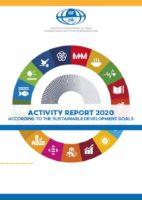In line with its corporate objective to promote knowledge of refrigeration and associated technologies and applications on a global scale, the International Institute of Refrigeration (IIR) has published a new reference guide called: The Role of Refrigeration in Worldwide Nutrition.
The 6th IIR guide on The Role of Refrigeration in Worldwide Nutrition draws on the latest figures, findings from reputable organizations such as the FAO, the United Nations and the Global Cold Chain Alliance to demonstrate the essential role that efficient cold chains can play in improving global food security.
The deployment of an efficient cold chain is essential for global food security
An update of previous versions published by the IIR in November 1996 and June 2009, this Note aims to emphasize the importance of refrigeration by proving that a more efficient cold chain can significantly reduce food losses and thus improve food safety and security in a sustainable way.
In this respect, the guide provides a series of recommendations with the aim of supporting efforts at national and international levels to implement appropriate measures in order to fulfill global commitments.
Some key figures:
- over 13% of all food is lost due to a lack of refrigeration
- an improved cold chain could feed 950 million inhabitants per year
- more than 1,600 million tons of food are lost and wasted every year
- 63% of all food losses come from developing countries.
Designed to meet the needs of decision makers worldwide, a complementary Summary Sheet for Policymakers outlining the key issues identified in the full version of this IIR Informatory Note is also available.
Both publications are available in French and English and can be downloaded at www.iifiir.org > Publications > Informatory Notes (https://iifiir.org/en/iir-informatory-notes).
About the IIR
The International Institute of Refrigeration (IIR) is an independent intergovernmental science and technology-based organisation promoting refrigeration knowledge and associated technologies that improve quality of life in a cost-effective and environmentally sustainable manner including:
- Food quality and safety from farm to consumer
- Comfort in homes and commercial buildings
- Health products and services
- Low temperature technology and liquefied gas technology
- Energy efficiency
- Use of non-ozone depleting and low global warming refrigerants in a safe manner.



